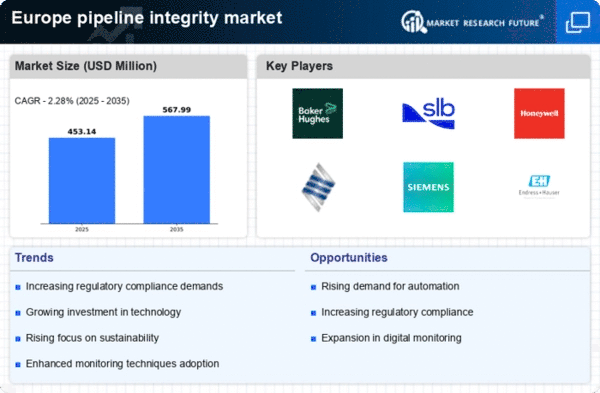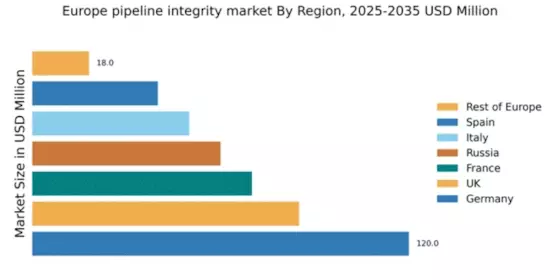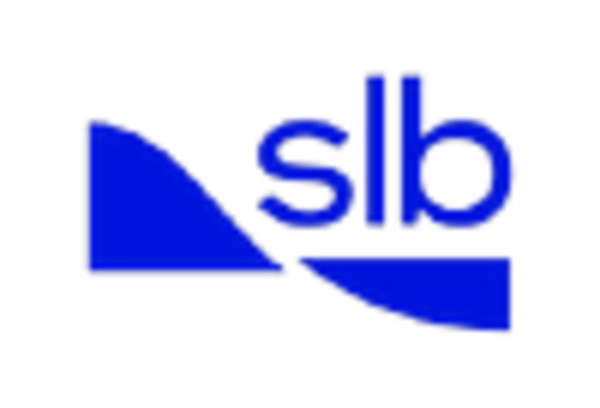Investment in Smart Technologies
The integration of smart technologies into pipeline management is transforming the pipeline integrity market in Europe. Innovations such as IoT sensors, AI-driven analytics, and real-time monitoring systems are enhancing the ability to detect anomalies and predict failures. According to recent studies, the adoption of smart technologies could reduce maintenance costs by up to 20% while improving operational efficiency. This technological shift not only aids in maintaining pipeline integrity but also aligns with the broader trend of digital transformation across industries. As companies increasingly recognize the benefits of these technologies, investment in smart solutions is likely to drive growth in the pipeline integrity market.
Focus on Safety and Risk Management
The heightened focus on safety and risk management within the energy sector is significantly influencing the pipeline integrity market in Europe. Recent incidents have underscored the importance of maintaining high safety standards to protect both human life and the environment. In response, companies are increasingly adopting comprehensive risk management frameworks that prioritize pipeline integrity. This shift is reflected in a projected increase in safety-related investments, with estimates suggesting a growth of 10% in spending on integrity management systems over the next few years. As organizations strive to enhance their safety protocols, the pipeline integrity market is likely to benefit from this trend.
Increasing Demand for Energy Security
The growing emphasis on energy security in Europe is a pivotal driver for the pipeline integrity market. As geopolitical tensions and energy supply disruptions become more prevalent, nations are prioritizing the integrity of their pipeline systems. This focus is reflected in investments aimed at enhancing monitoring and maintenance practices. The European Commission has reported that energy security concerns have led to a projected increase in spending on pipeline integrity solutions by approximately 15% over the next five years. This trend underscores the necessity for robust infrastructure to ensure uninterrupted energy supply, thereby propelling the pipeline integrity market forward.
Environmental Regulations and Compliance
The stringent environmental regulations in Europe are a crucial driver for the pipeline integrity market. Regulatory bodies are enforcing stricter compliance measures to minimize environmental impacts associated with pipeline operations. This includes requirements for regular inspections, leak detection systems, and emergency response plans. The European Environment Agency has indicated that non-compliance can result in fines exceeding €1 million, prompting operators to prioritize integrity management. As a result, the demand for compliance-driven pipeline integrity solutions is expected to grow, as companies seek to avoid penalties and enhance their environmental stewardship.
Aging Infrastructure and Maintenance Needs
A significant driver for the pipeline integrity market in Europe is the aging infrastructure of existing pipeline systems. Many pipelines were constructed several decades ago and are now facing deterioration and increased risk of leaks or failures. The European Union has estimated that nearly 30% of pipelines are over 30 years old, necessitating urgent maintenance and integrity assessments. This situation compels operators to invest in advanced inspection technologies and rehabilitation methods to ensure safety and compliance with regulatory standards. Consequently, the demand for pipeline integrity solutions is expected to rise as operators seek to mitigate risks associated with aging infrastructure.


















